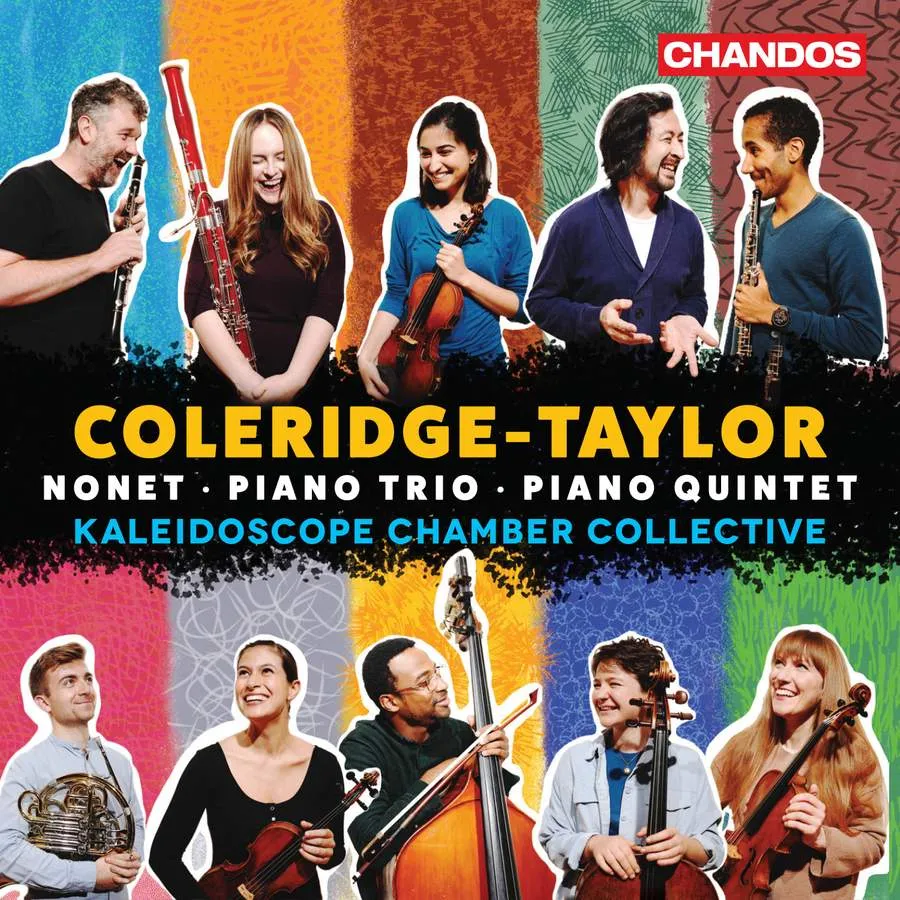
Coleridge-Taylor Piano Quintet, Op. 1; Nonet, Op. 2; Piano Trio in E minor Kaleidoscope Chamber Collective Chandos CHAN 20242 63:39 mins
Samuel Coleridge-Taylor worked himself into an early grave aged just 37. Nurtured by Stanford, encouraged and recommended by Elgar, he became one of British music’s shining stars when his oratorio Hiawatha’s Wedding Feast turned into Victorian England’s favourite extravaganza – after he had signed away the rights for a pittance. Son of an English mother and a medical student from Sierra Leone, Coleridge-Taylor was something of a prodigy, and thanks to philanthropic support he was able to attend the Royal College of Music. It was there, in 1893, aged about 18, that he wrote these three chamber works – at least two of which were only performed once in his lifetime.
All of them are promising rather than full-blown masterpieces (Coleridge-Taylor acknowledged the Nonet’s status in his progress by subtitling it ‘Gradus ad Parnassum’); yet they are substantial, serious and beautifully written. Coleridge-Taylor wields a vivid palette in the Nonet; the pithy Trio offers some wonderfully inspired moments, notably the scherzo’s rhapsodic central trio; and the Piano Quintet offers audible tributes to Dvořák.
The music’s youthful joie de vivre is matched by the Kaleidoscope Chamber Collective’s warmth, enthusiasm and finesse – qualities all the more heightened since the ensemble made the recording just after the music-starved Covid-19 lockdown. Elena Urioste is an ever-eloquent first violin, Tom Poster’s silvery pianism glistens and flows as if effortless, and all of their colleagues match them with spontaneous, collegial and well-balanced playing, making the whole more than the sum of its already excellent parts.
Jessica Duchen
More reviews
Rachmaninov
Benjamin Britten: Peace and Conflict

